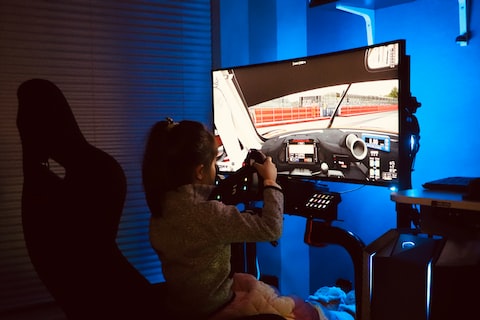Gaming has become an integral part of modern society, captivating individuals across different age groups. From console games to mobile apps, the gaming industry has experienced unprecedented growth in recent years. But beyond entertainment, gaming has a profound positive influence on society that is often overlooked. Let’s delve into some of the ways gaming has impacted society and discover its positive influence.
1. Education:
Gaming has opened new avenues for learning and education. Educational games or gamified learning platforms have been developed to make the learning process enjoyable, engaging, and effective. Such games encourage critical thinking, problem-solving, creativity, and improve cognitive skills. They offer an interactive and immersive experience, allowing students to grasp complex concepts in a fun way. By blending entertainment with education, gaming has transformed the traditional learning landscape.
2. Social Interaction:
Gaming has revolutionized social interaction, breaking down physical barriers and connecting individuals from all around the world. Multiplayer online games provide opportunities for people to collaborate, compete, and interact in a virtual environment. Through gaming communities and forums, gamers can form friendships, share experiences, and even learn about different cultures. Gaming has fostered a sense of community and camaraderie among players, creating lasting relationships beyond the virtual world.
3. Mental Well-being:
Gaming has proven to have a positive impact on mental well-being. Engaging in video games can reduce stress and anxiety levels, offering an escape from the pressures of daily life. It provides a form of entertainment that stimulates the mind and promotes relaxation. Furthermore, certain games designed specifically for mental health, such as puzzle games or mindfulness apps, can help individuals improve focus, memory, and cognitive abilities. Gaming has emerged as an effective tool for maintaining and enhancing mental well-being.
4. Skill Development:
Gaming encourages the development of various skills. Fast-paced action games improve hand-eye coordination, reflexes, and strategic thinking. Role-playing games enhance problem-solving skills, decision-making abilities, and teamwork. Additionally, multiplayer games promote communication and collaboration skills. By engaging in video games, individuals can acquire and refine a wide range of skills that are transferable to real-life situations.
5. Innovation and Technology:
Gaming has been a driving force behind innovation and technological advancements. The demands of the gaming industry have spurred the development of cutting-edge technologies, such as virtual reality (VR) and augmented reality (AR). These technologies have found applications beyond gaming, revolutionizing fields like healthcare, training, architecture, and more. Gaming continues to push the boundaries of technology, inspiring new possibilities and improvements in various industries.
In conclusion, gaming has a significant positive influence on society. From enhancing education to fostering social connections and promoting mental well-being, gaming has proven its transformative power. Embracing the positive impact of gaming enables society to leverage its potential for personal development, social integration, and technological advancements.

